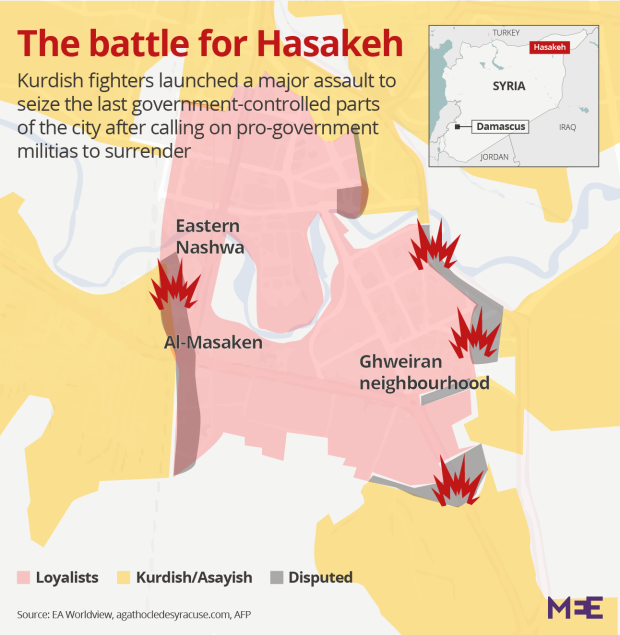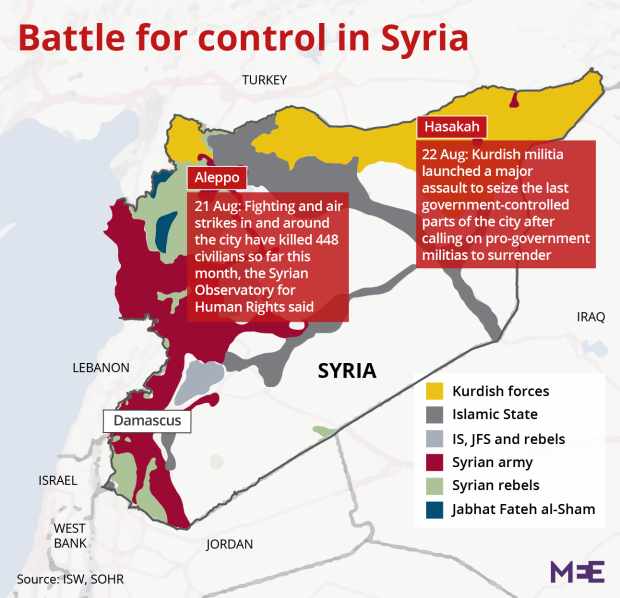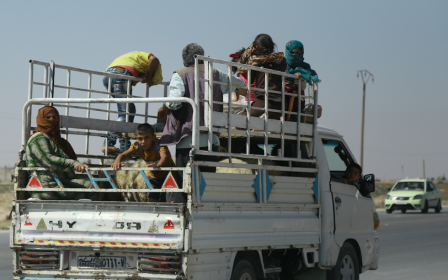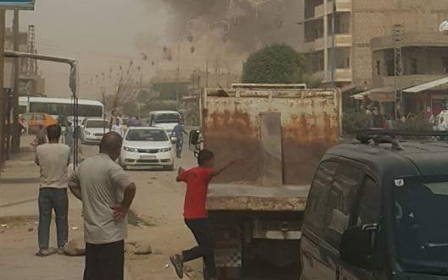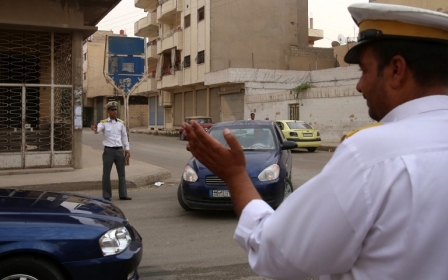Kurds claim control of Hasakah in setback for Assad's forces
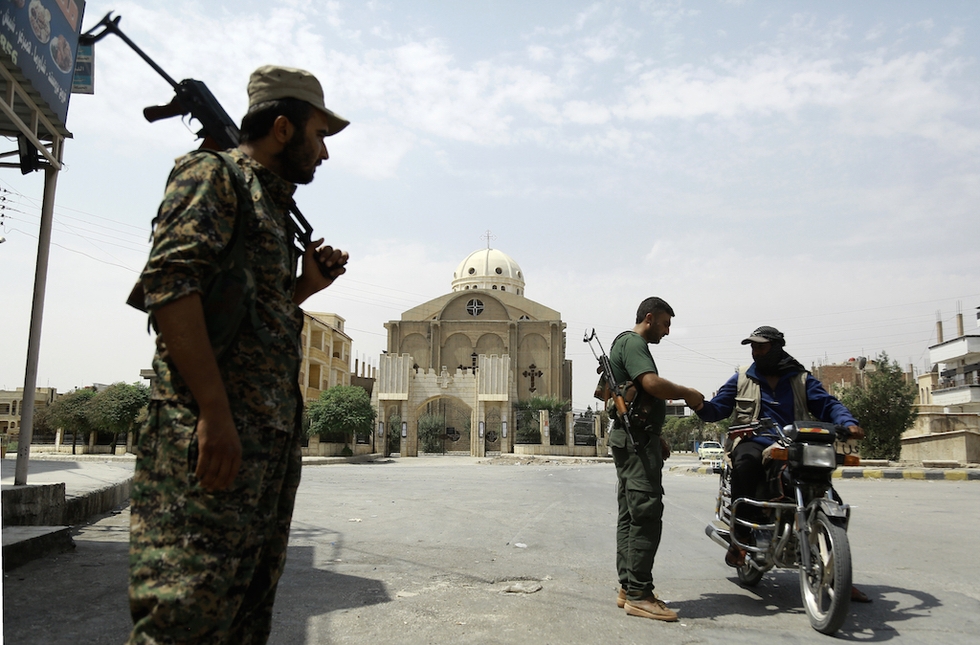
The pro-Kurdish People's Protection Units (YPG) was on Tuesday reported to be in control of the "majority" of the northeastern Syrian city of Hasakah, following clashes with pro-government forces.
According to the Syrian Observatory for Human Rights (SOHR), Hasakah's few remaining pro-government officials were now confined to a few buildings in the city centre while the rest of the city was under YPG control.
"Even if they [pro-government militias] keep a symbolic presence, it is a big defeat for the regime in Hasakah," said SOHR Director Rami Abdulrahman.
Naser Haj Mansour, a Kurdish official, told Reuters that the "overwhelming majority of the city" was under YPG control, but said that some fighting was still under way.
Hasakah has been divided between YPG control and government control - primarily the paramilitary National Defence Forces - since 2013, but clashes have frequently broken out between the two sides.
Last week, the tense power-sharing arrangement in Hasakah broke down, leading to Syrian government forces striking YPG/SDF-controlled targets, with the government accusing them of “provocations” in the city.
Government air strikes pounded Hasakah - the first time they have been used against forces linked to the YPG since the beginning of Syria’s civil war.
A co-commander of the Asayish - the name given to the YPG-backed security forces in the city - announced on Monday that a ceasefire had been agreed between the two sides:
In March, the YPG and allies declared the establishment of the "Federation of Northern Syria – Rojava" in areas under their control in northern Syria.
Based on a principle of "Democratic Confederalism" and "Self-Administration," the YPG have claimed the system of governance established in the region could provide the blueprint for the establishment of a new political system in the Middle East, cutting around religious and ethnic divisions.
On Tuesday, Christians in Hasakah appealed for aid against Bashar al-Assad.
The European Syriac Union (ESU), a body representing the interests of Syriac Christians, released a statement on Tuesday calling on the US and EU to increase their support to the YPG-linked Syrian Democratic Forces (SDF)
“Besides Kurds and Arabs, many of the Syriac Christians, who live in the Hasakah region, suffer under the continuing violence,” read the statement.
They said that Christians who had fled from attacks by the Islamic State (IS) group were “now again confronted with violence”.
“The EU and US need to increase as soon as possible their cooperation with the SDF [including the Syriac Military Council] and the Self-Administration in order to protect the people and send in much needed aid,” continued the statement.
The use of air strikes against targets in Hasakah is particularly controversial due to the presence of groups backed by the US, who they support in the fight against IS.
On Monday, US jets scrambled in a warning shot to the Syrian government not to carry out strikes on US-backed fighters or personnel.
"We would continue to advise the Syrian regime to steer clear of those areas," Pentagon spokesman Peter Cook told reporters.
"We are going to defend our people on the ground, and do what we need to defend them."
The movement marked the first time US jets had responded to Syrian government actions since the beginning of the war.
While Cook avoided threatening a politically risky “no-fly zone” over the area, he nevertheless warned that the US would “always have the right to defend our forces” if they came under attack from Syrian or Russian jets.
New MEE newsletter: Jerusalem Dispatch
Sign up to get the latest insights and analysis on Israel-Palestine, alongside Turkey Unpacked and other MEE newsletters
Middle East Eye delivers independent and unrivalled coverage and analysis of the Middle East, North Africa and beyond. To learn more about republishing this content and the associated fees, please fill out this form. More about MEE can be found here.


